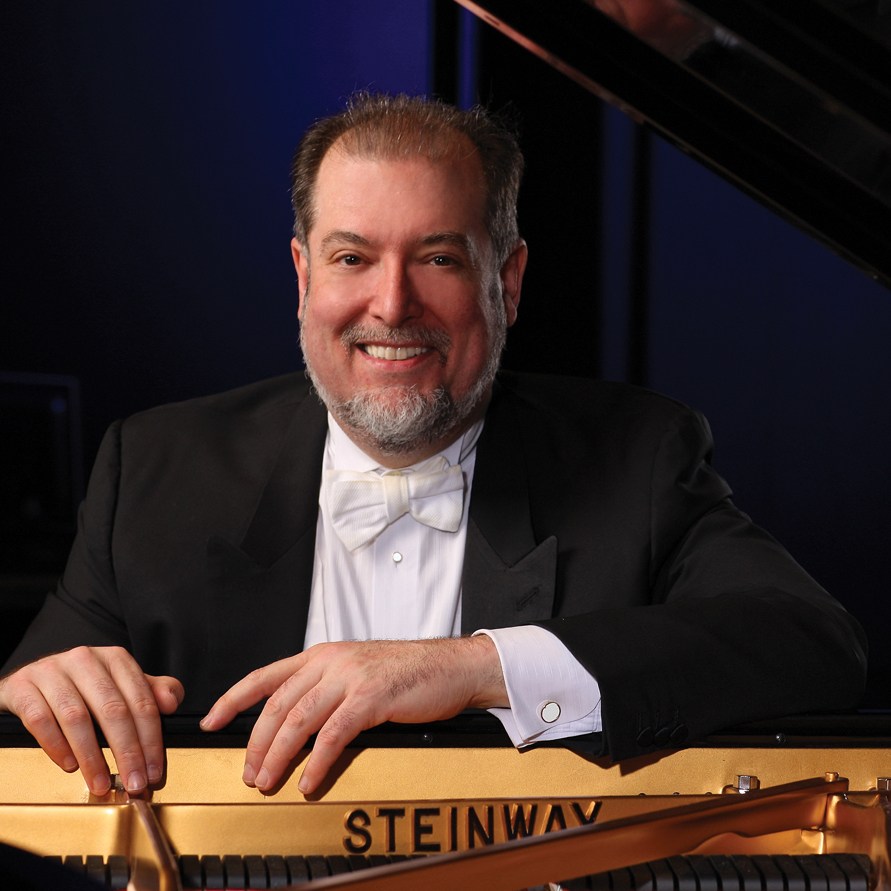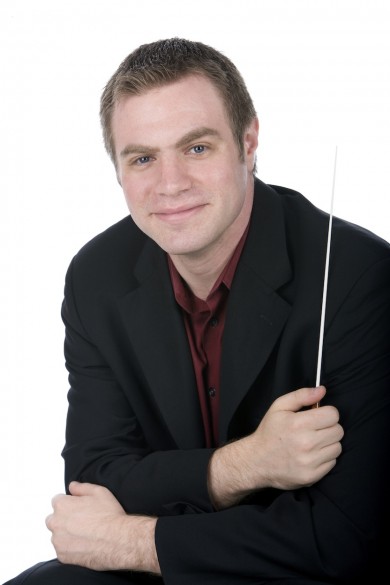Magnificent Rachmaninoff from Ohlsson with an auspicious podium stand by Gersen

Garrick Ohlsson performed Rachmaninoff’s Piano Concerto No. 2 with the New World Symphony Friday night.
Rachmaninoff’s Piano Concerto No. 2 may be one of the most overplayed works in the repertoire but a veteran pianist and young substitute conductor managed to infuse new life into this venerable warhorse at the New World Symphony’s performance Friday night.
Garrick Ohlsson is an old hand at the works of Rachmaninoff as well as one of the most consistent piano soloists on the contemporary concert scene, continually refreshing his readings of the most familiar scores. The New World’s conducting fellow Joshua Gersen replaced the ailing Rafael Fruhbeck de Burgos on the podium. Gersen has often led opening pieces on the orchestra’s major series and has conducted the ensemble’s family programs and mini-concerts. Friday night at New World Center he proved more than ready for this high- profile opportunity.
From the opening bars of the Rachmaninoff concerto, Ohlsson exuded clear authority. He can play with tremendous power and volume but also holds it in reserve for the big moments, the longer arc of the score taking precedence over superficial flash. Over Ohlsson’s rolling chords, Gersen blended the ensemble’s initial statement of the first movement’s principal theme, the string sound luminous and full. Balances between soloist and orchestra were close to ideal and the horn solo emerged warm and rounded. Ohlsson avoided overt sentimentality, drawing a mellow, multi-colored sound from the New World Center’s Yamaha, an instrument that can sound glassy in lesser hands.
The pure tone and supple blend of the winds at the onset of the Andante sostenuto set the scene for Ohlsson’s fluent statement of the movement’s haunting melody. He gave the more aggressive central episode extra lift and bite, the cadenza note-perfect.
Ohlsson threw caution to the winds in the finale, speed and energetic rhythm capturing the quirky buoyancy of Rachmaninoff’s marking. Gersen’s precise cuing of crucial brass and percussion entrances and transparent delineation of the instrumental lines in the fugal episode built to a grand climax, the final statement of the romantic theme broadly lustrous. Under Ohlsson’s lithe fingers, the coda was fast and thunderous.
Prolonged applause brought Ohlsson back for the most familiar of Rachmaninoff encores — the Prelude in C-sharp minor. He conveyed the music’s solemn gravitas and his steady tread built to a grandiose sonority, with the final chord fading into silence to powerful effect.
Gersen opened the program with a brisk performance of Glinka’s Overture to Ruslan and Ludmilla. The descending scales near the conclusion were notable for the strong unison precision by the strings and the cellos’ supple statement of the secondary theme was also a standout.
Respighi’s 1924 tone poem The Pines of Rome can sound merely loud and garish but not under Gersen’s baton. He treated the score as Italianate impressionism. Instrumental timbres were astutely balanced and never harsh. The bassoons, lower strings, harp and offstage trumpet evoked the spare plainchant melody of the catacombs episode and Gersen built the swaying rhythm slowly to a full gleaming crescendo. With additional brass on the balcony at stage left, extra percussion and organ, the final “Pines of the Appian Way” resounded with splendor.
The New World Symphony repeats the program with the addition of Ravel’s Mother Goose Suite 8 p.m. Saturday at the Arsht Center in Miami. nws.edu. 305-673-3331.
Posted in Performances
Leave a Comment
Sat Mar 29, 2014
at 12:55 pm
No Comments







